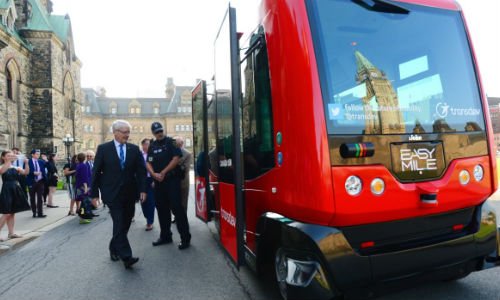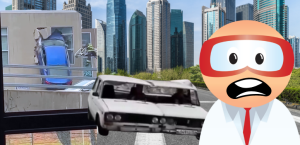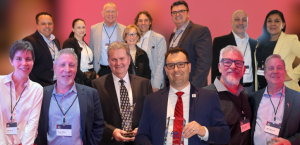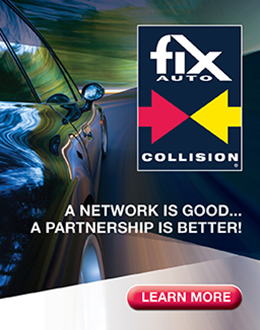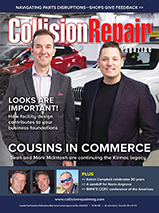By Jeff Sanford
Toronto, Ontario — September 25, 2017 — In this week’s Autonomous Report, the federal government is “running hard” to keep up with advances in autonomous vehicles (AVs), Amazon scouts for a second headquarters, BlackBerry and Delphi will partner to produce a self-driving operating system and much, much more!
– Canadian Transport Minister Marc Garneau is leading the AV efforts of the federal government. In an interview with the CBC recently he called AVs a, “… disruptive technology with huge potential.” He said the country is doing “its best” to keep up with the rapid pace of innovation in the sector. He is quoted as saying that, “From a regulatory point of view, we are running hard to keep up with this developing technology. It is absolutely critical that we do it … what we don’t want is to slow down this technological development, but at the same time, we have to make sure that our streets remain safe.”
Garneau wants to do this by expanding pilot projects beyond test facilities. He made the remarks during an automated vehicle demonstration on Parliament Hill on Wednesday. The CBC story also quoted Sen. Dennis Dawson of Quebec, saying that Canada needs a, “… national regulatory framework to help all levels of government — municipal, provincial and federal — prepare for the future.”
The story suggests that Canada is already behind lagging the US. Garneau is also quoted as saying, “The provinces and the cities have to adapt to the fact that they are coming down the road.”
– As Amazon moves on to begin grocery delivery through automated vehicles and emerges into the new era of AVs, the company needs a second headquarters. Cities across North America have jumped into action and are preparing bids to be the second headquarters of Amazon.com. The massive online retailer has pretty much run out of room in Seattle where the company occupies 19 percent of the downtown office space. That is by far the largest chunk of office space taken up by a single tenant in a major developed city. No other downtown anywhere is as dominated by one tenant.
The company says it’ll need space for 50,000 new IT employees. This is an amazing number of people. Every city in North America wants this, obviously. The winning urban area will be transformed into a new Silicon Valley.
Canadian cities, including Vancouver, Calgary, Toronto and Halifax are all planning bids. City officials are waking up to the idea that there is a new “fourth industrial revolution” occurring as the Internet of Everything merges with AVs and AI. Many mundane entry level jobs will be lost to AI. Many new jobs will pop up to manage this shift and change.
Stratford, Ontario is also getting in on the new boom. According to a report by Toronto Life, the city of a little over 30,000 people is emerging as the centre of the AV industry in Canada. Apparently the city has become a, “… hub for self-driving cars.” The story begins with a scientist who trained many of those working in AI research at Apple and Facebook, a U of T professor named Geoffrey Hinton, or, as a different article by Toronto Life calls him, “the Godfather of Machine Learning … he’s the guy who developed neural networks that allow computers to mimic a brain and learn like a human.” Now he is working at the Vector Institute, a U-of-T affiliated organization that is applying AI to finance, construction and health care: “Vector’s existence is the reason Google and Uber have created AI labs in Toronto–the institute only accepted inter¬national funding if its investors set up shop north of the border.”
Stratford also has a University of Waterloo digital media site, a startup accelerator and, “… an autonomous vehicle facility from the semiconductor company Renesas, which will be up and running by October.” Also, when the Ontario government put down $80 million for research on self-driving cars, “… it made Stratford ground zero. Over the next year or two, researchers will test cars donated by manufacturers like Toyota on a closed track before they hit the city’s streets. The cars, operated by backup drivers, won’t be chauffeuring theatregoers around quite yet, but the goal is to test the vehicles’ brains in all seasons to make sure they’re road ready.”
– In the US it seems Pittsburgh is emerging as a centre of AV tech. Could the city have a chance to get the Amazon HQ2? Some are suggesting as much. The old manufacturing town is actually home to some serious education institutes. These institutions are spitting out AV experts who are walking into ridiculously highly-paid jobs.
According to a story on CNBC, “Carnegie Mellon University in Pittsburgh is spinning out graduates earning $200,000 to work in the rapidly growing field of self-driving cars… Pittsburgh has become America’s unofficial self-driving car research capital. At least four companies in the autonomous vehicle business, including Uber, have set up offices in the city; they’ve been testing its self-driving cars on Pittsburgh’s streets since 2016.” Andrew Moore, Dean of Carnegie Mellon’s computer science school is quoted in the story as saying that the six-figure offers that graduates of its computer vision program are getting are, “…unheard of for any role until recently. It does feel very much like a gold rush town at the moment.” Moore estimates that, “…there are up to 2,000 computer vision grads working in Pittsburgh right now.”
– A fascinating story by Quartz about AVs and insurance appeared this week. According to Lloyds CEO Inga Beal, the world’s oldest insurer has been, “… ready to insure autonomous vehicles such as self-flying planes for two decades.” According to Beale, regulators have proven, “… unwilling to green-light the technology, while the public remains wary of completely handing over the cockpit to computers.”
Planes have been highly automated for years now. According to the article the US Navy was landing automated F-18s on aircraft carriers 20 years ago. Talking to a reporter, the CEO said, “We’re all set [to issue] insurance for autonomous planes … The regulators just haven’t pressed the button even though the technology has been around for 20 years.” The story goes on to say that the, “… technology to make the skies even safer by eliminating human error, and handing the keys completely over to computers, has been around for a long, long time. It’s just not being used.” As it is, “Computers are already behind the stick for most of a commercial flight. During a 2.5 hour domestic trip, 95 percent of the work is handled by autopilots and flight-management systems …”
– Shares in BlackBerry enjoyed a bit of a bump up last week, spiking more than eight per cent on Wednesday after announcing its partnership with auto massive auto supplier Delphi Automotive. Blackberry, of course, is betting big on the AV sector. The company controls QNX, a major digital technology already built into many cars. Now Delphi, one of the world’s largest auto parts manufacturers, will partner with BlackBerry to make an operating system for driverless cars. According to a report from Reuters, “Delphi already has developed a turnkey self-driving system called CSLP that it plans to begin selling to automakers and other transportation providers in 2019, for production in 2021.”



